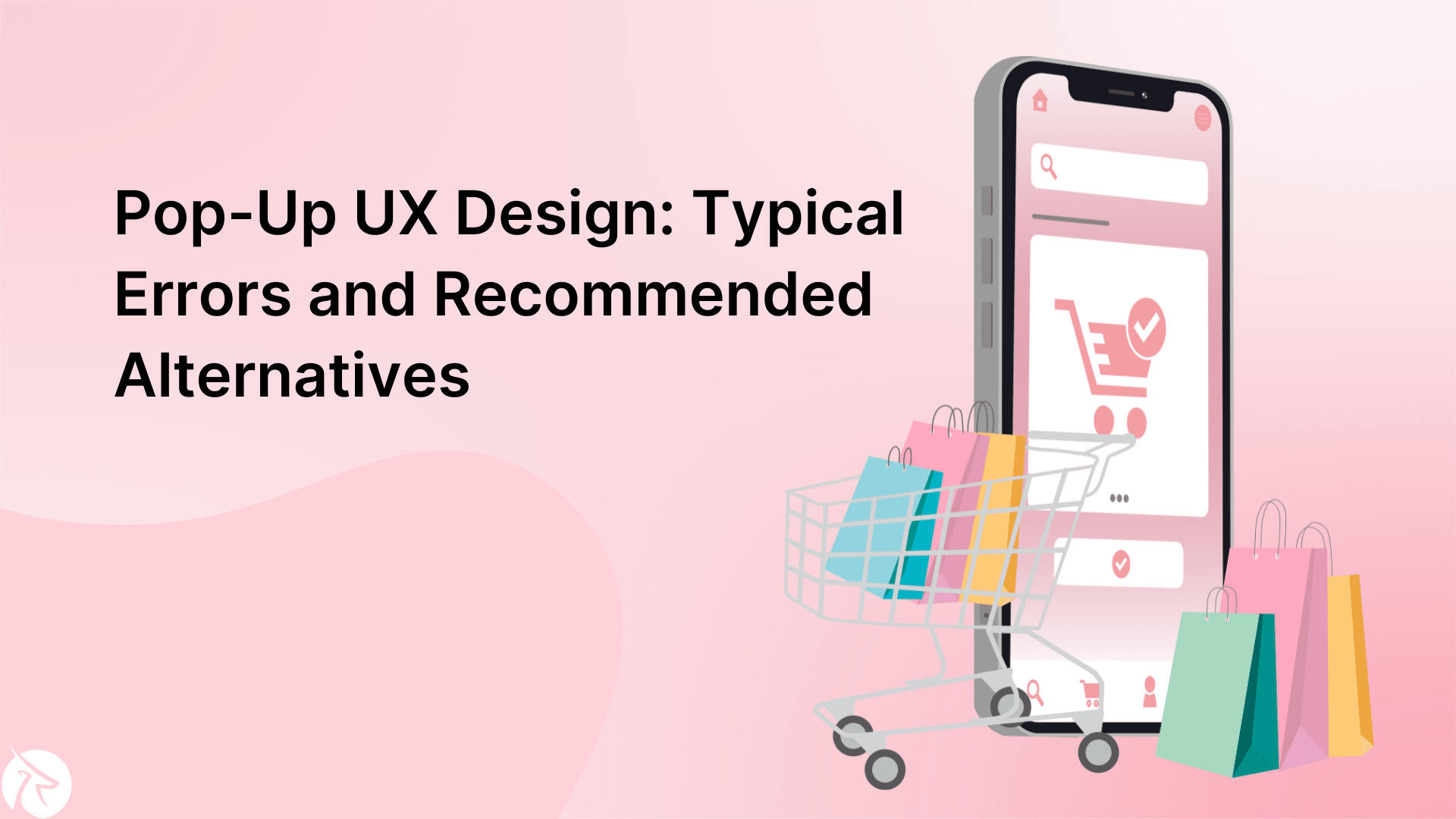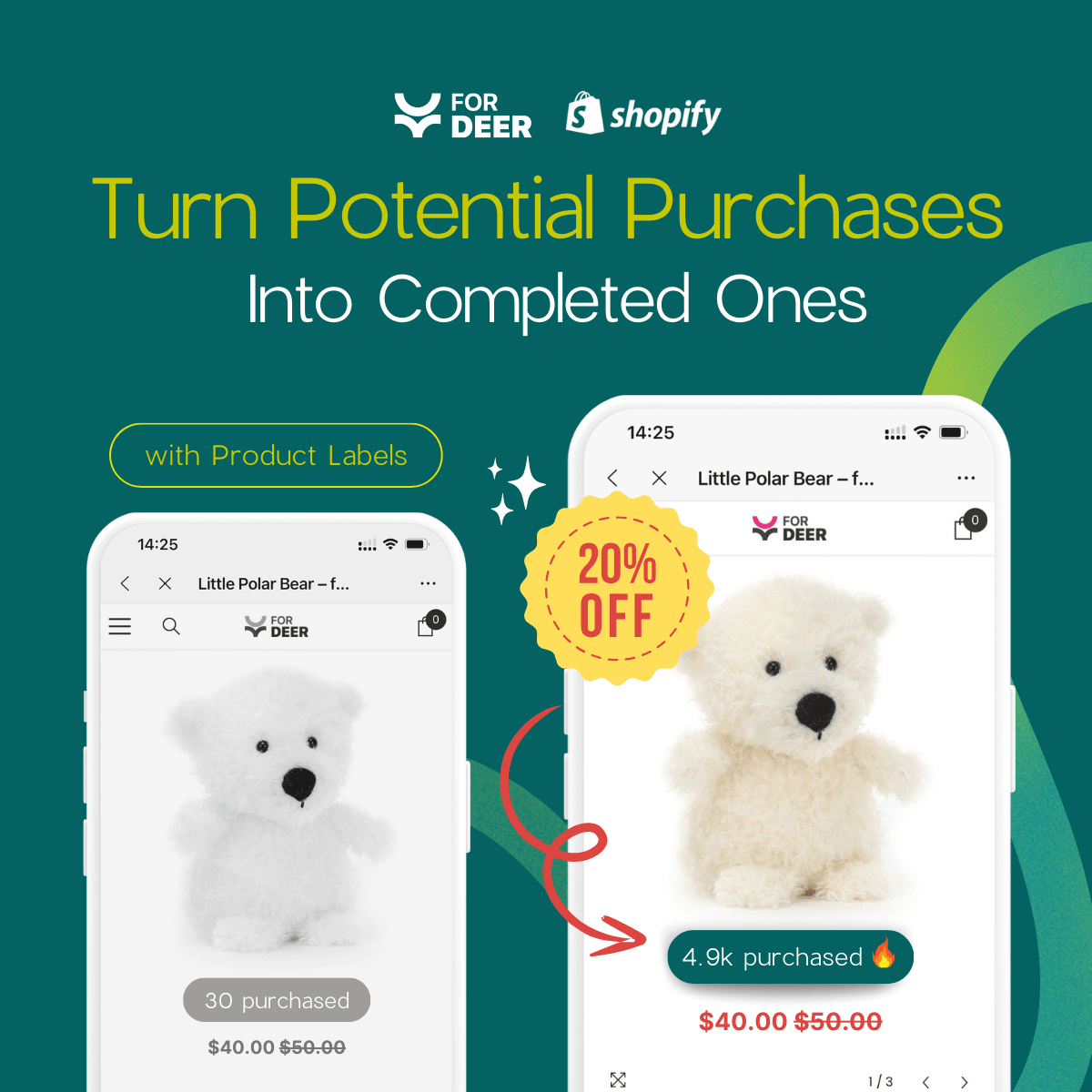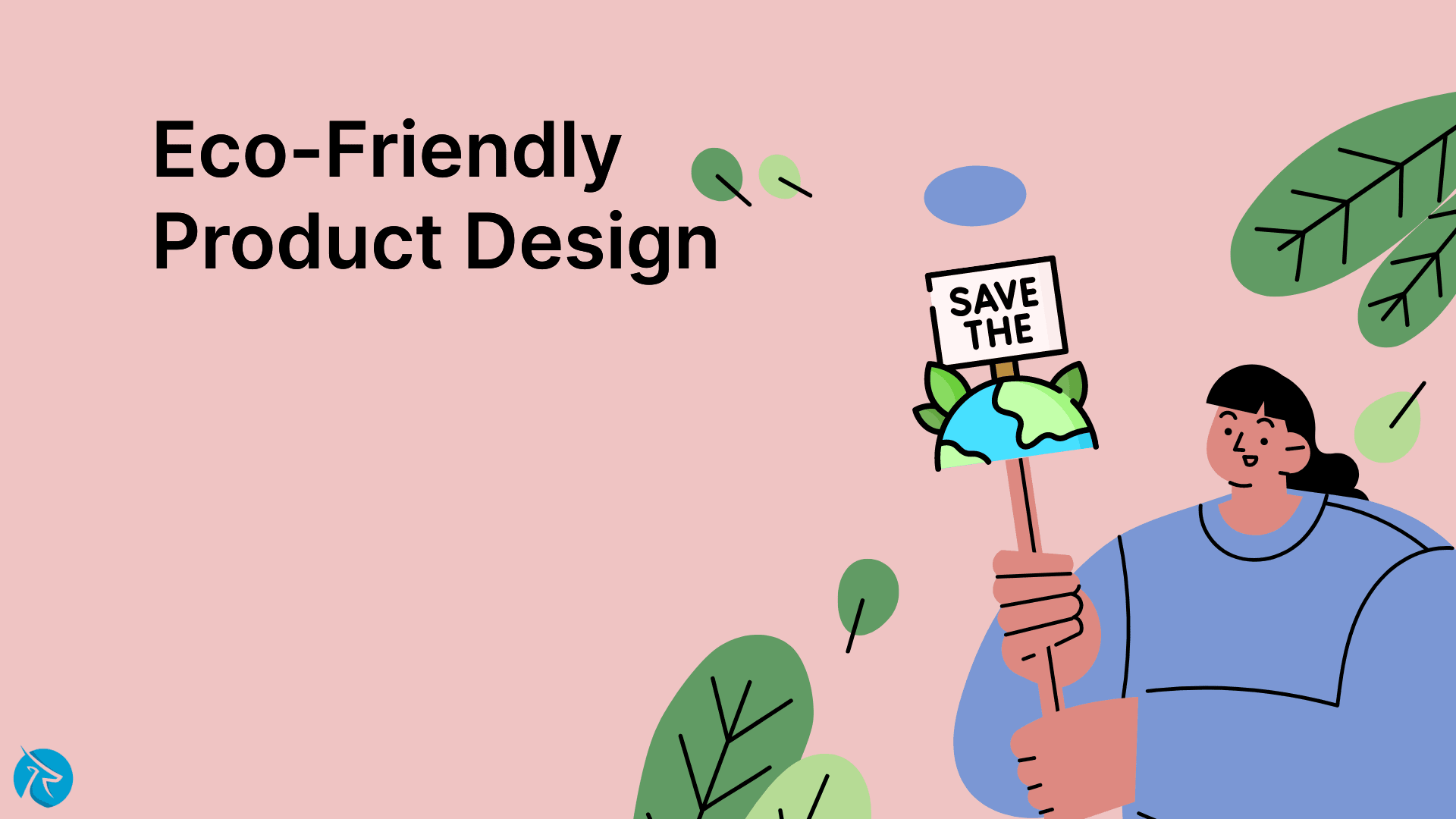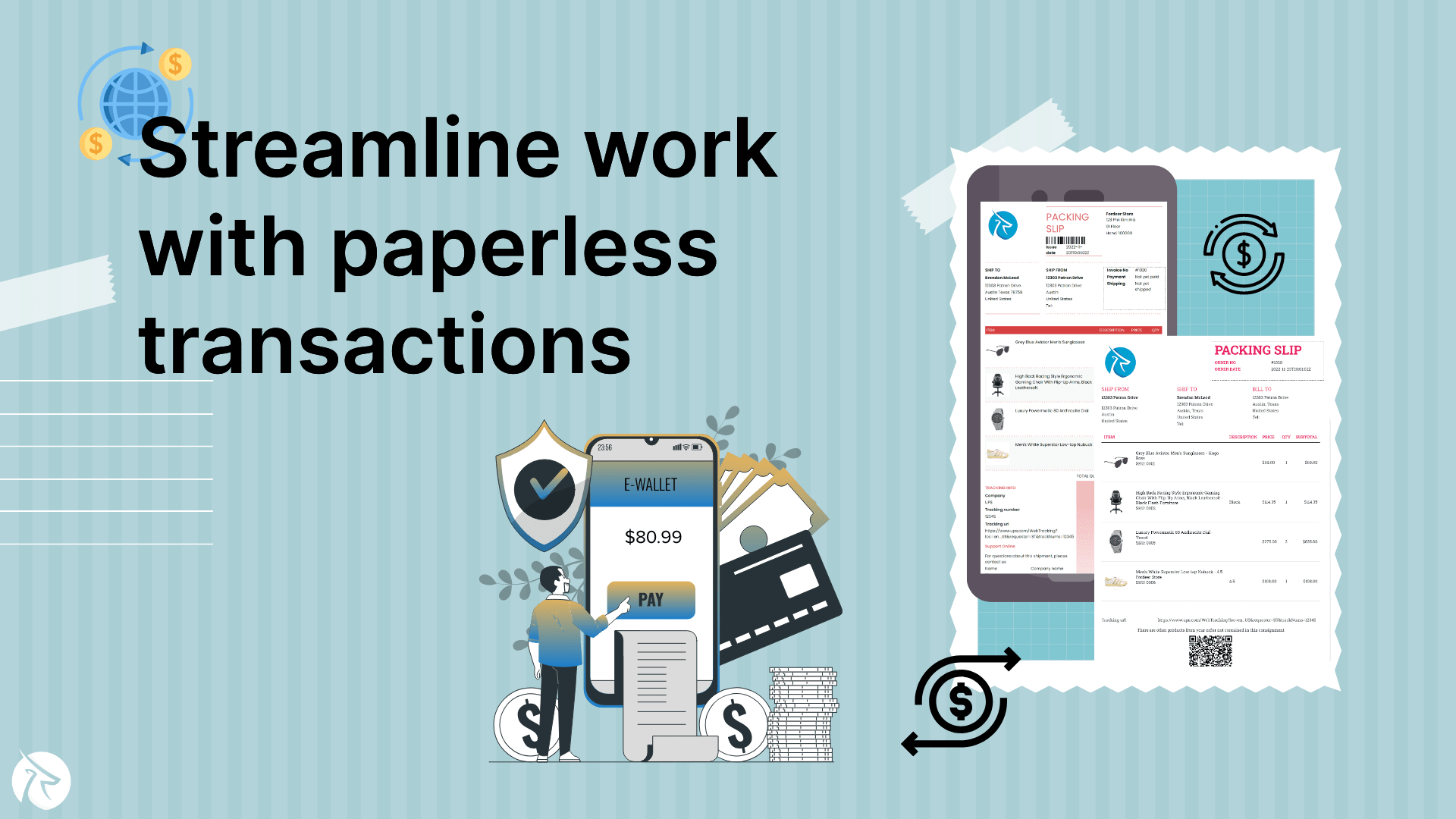Pop-Up UX Design: Typical Errors and Recommended Alternatives

You may have noticed that nearly every online business incorporates popups into their websites. But why do they employ these, even though popups are often considered bothersome?
In this Fordeer article, we'll delve into the prevalent popup errors that can diminish user experience (UX), share strategies to steer clear of them and provide insights on optimizing your conversions through improved popup UX design.
The Goals of Entrepreneurs
Every entrepreneur has a common goal: to boost conversions, whether increasing sales, gaining more subscribers, or driving more traffic. While all entrepreneur aims for this, not all achieve their desired conversion rates.
However, understanding the significance of user experience (UX) and optimizing accordingly can help you inspire more visitors to take the desired action.
Your website serves as a crucial tool for conveying your message to customers. This highlights the importance of implementing top-notch UX practices on your website to achieve your business goals. The same principle applies to the popups integrated into your site.
The prevailing misconception that popups are intrusive and detrimental to UX is giving way to a fresh, forward-thinking perspective.
Popup UX Design: Avoiding Common Popup Pitfalls - Opt for These Alternatives Problematic Popup Types
You're likely making critical errors if you need to achieve the desired conversions with your popups.
Like how website UX design significantly influences conversion rates, popup UX design plays a crucial role.
There could be several reasons your popups need to generate the sales, leads, and engagement you envisioned. Some of these reasons include:
- Lack of segmentation in your popups.
- Need to have a complete understanding of your target audience.
- Please establish display and targeting rules for your popups.
- Using an unsuitable popup builder that aligns differently from your business objectives.
Fordeer: Sales Pop Up ‑ Popups, a cost-effective popup builder service, provides all the advanced features necessary to enhance popup UX design and increase conversions.
Below, Fordeer will examine the most prevalent popup mistakes that may unknowingly exist on your website.
Don't fret; Fordeer will also guide you on replacing these suboptimal popup practices with the best alternatives. Let's dive right in.
Avoiding Entry Popups When a Visitor Lands on Your Website
Entry popups, which appear immediately when a user opens a website, tend to harm user experience. Traditional entry popups are problematic because they:
- It can be perceived as annoying.
- Interrupt the browsing and content reading process.
- Distract and frustrate visitors.
- Often results in users quickly leaving your website.
What to Consider Instead
Entry popups are overused, typically containing bothersome and irrelevant advertisements or outdated messages. These popups degrade the overall user experience to the extent that Google has introduced an Intrusive Interstitial Policy, discouraging intrusive popups that disrupt a visitor's activity.
Instead of resorting to intrusive entry popups, consider initially allowing your visitors to become acquainted with your website and brand. Then, carefully select the right moment to introduce your campaign.
- Display Popups After a Specific Duration
Fordeer: Sales Pop-Up ‑ Popups allow you to schedule your popup to appear after a certain number of seconds ('X' seconds), providing users ample time to familiarize themselves with your site.
- Show Popups After Scrolling
When a visitor scrolls down a certain percentage of a website, it indicates potential interest in its content, services, or products. With Fordeer: Sales Pop Up ‑ Popups, you can configure your popup to display after a designated scrolling percentage, a recommended practice for enhancing popup UX design.
- Capture Abandoning Visitors with Exit Intent
Another effective popup UX design strategy involves triggering your popup when users show signs of leaving your website or abandoning their shopping carts. You can activate the exit-intent trigger, but it's advisable to carefully set the view frequency of your exit-intent popup to avoid visitor annoyance.
Avoiding Disrupting Visitors While They're Engaged in a Task
Interrupting visitors as they're actively engaged in a task on your website, such as filling out form fields to complete a purchase, can be counterproductive and frustrating. This interruption may lead to customer confusion and potentially result in losing a valuable customer.
What to Consider Instead
You should carefully optimize the timing of your popups to enhance user experience.
Allow Users to Finish Their Tasks: To improve popup UX design, it's advisable to wait for visitors to complete their tasks before introducing a popup. Once they've finished, you can request feedback, which can be valuable for enhancing on-site user experiences.
Ensuring Content Accessibility While Using Popups
Some modal and full-screen popups obstruct the content visitors initially sought when arriving at your website. This obstruction often prompts users to leave your site without engaging with the content they are interested in.
What to Consider Instead
It's crucial to consider the types of popups you use and when you display them.
- Utilize Sidebar Popups: Sidebar popups maintain the flow of content and visitor interaction.
- Employ Floating Bar Popups: Floating bar popups, presented as top or bottom bars, maintain content accessibility.
Implement After-Scrolling Targeting for Full-Screen Popups: If you opt for full-screen popups, set targeting rules to avoid interrupting users. For instance, you can set after-scrolling targeting to trigger the popup at the end of the content or explore other targeting practices like the exit-intent trigger.
Tailoring Popups to Your Audience
Customizing your audience's targeting and display rules is crucial, as the same popup may resonate differently with all visitors.
What to Consider Instead
Instead of simultaneously presenting the same popup to all users, use various display rules to segment your audience effectively.
- Segment customers based on language or browser language
- Target your audience according to geographical location
- Distinguish between new and returning visitors
- Segment users by traffic source
Avoiding Excessive Information Requests
Incorporating too many form fields into your popup design can detract from the overall pop-up UX.
What to Consider Instead
Requesting excessive information can overwhelm users and encourage them to complete the desired action. Instead, eliminate unnecessary form fields from your popup. Extreme form fields contribute to poor popup design.
Opting for Alternative Approaches for Cookie and GDPR Notifications
Modal overlay popups often carry a negative reputation and are often associated with irrelevant ads and scams. Consequently, users tend to dismiss them without consideration.
What to Consider Instead
Avoid using modal overlay or full-screen popups for essential messages such as cookies and GDPR notifications. Instead, opt for less intrusive options like floating bar or sidebar popups that maintain a smoother user experience.
Minimizing Multiple Popups on a Single Page
Presenting multiple popups concurrently, even if they are well-optimized and visually appealing, can result in a poor user experience.
What to Consider Instead
Instead of overwhelming users with multiple popups on the same page, focus on a single popup with a clear objective. Utilize Popupsmart's URL Browsing feature to include or exclude your popup from specific URLs selectively.
Employing Unappealing Popup Design
What to Consider Instead
Instead of resorting to unattractive popups on your site, opt for Fordeer: Sales Pop-Up ‑ Popups to craft modern and visually appealing alternatives.
For an improved popup UX design, an appealing popup should:
- Feature a clear and compelling call to action.
- Minimize the number of form fields.
- Utilize eye-catching colors that align with your branding.
- Include relevant and engaging images when appropriate.
Conclusion
Steering clear of the errors above is essential for achieving a refined and optimized popup UX design. By adhering to best practices, popups can deliver leads, conversions, increased traffic, and heightened engagement.
Fordeer invites you to share your insights and thoughts in the comments below.
Fordeer appreciates your time and attention.
FAQs:
Are pop-ups effective for increasing website conversions?
Yes, when used correctly, pop-ups can boost website conversions by capturing leads, promoting products or services, and reducing cart abandonment. However, it's crucial to avoid common mistakes in pop-up design to ensure their effectiveness.
What are the most common pop-up design mistakes that harm user experience (UX)?
Some common pop-up design mistakes include displaying entry popups, interrupting visitors during tasks, blocking access to content, displaying the same pop-up to all users, requesting excessive information, and using intrusive modal overlay popups for notifications.
How can I optimize the timing of pop-ups to improve UX?
To optimize pop-up timing, consider waiting for users to complete their tasks before displaying a pop-up. You can also set pop-ups to appear after a specific duration or trigger them based on user actions like scrolling or attempting to exit the site.
What should I consider when designing an attractive pop-up?
An attractive pop-up should have a clear call-to-action, minimal form fields, eye-catching and brand-appropriate colours, and relevant and engaging images when necessary. These elements contribute to a visually appealing and effective pop-up design.
How can I prevent multiple pop-ups from overwhelming users on the same page?
To avoid overwhelming users with multiple pop-ups, focus on a single pop-up with a well-defined objective. You can also use tools like URL targeting to selectively display pop-ups on specific pages or to specific user segments.
For more invaluable information, stay updated with Fordeer Team!
- Install Fordeer Apps for Free
- Get immediate assistance by chatting with us.
- Join Fordeer Commerce Community for fresh app updates, expert tips, and private deals.











